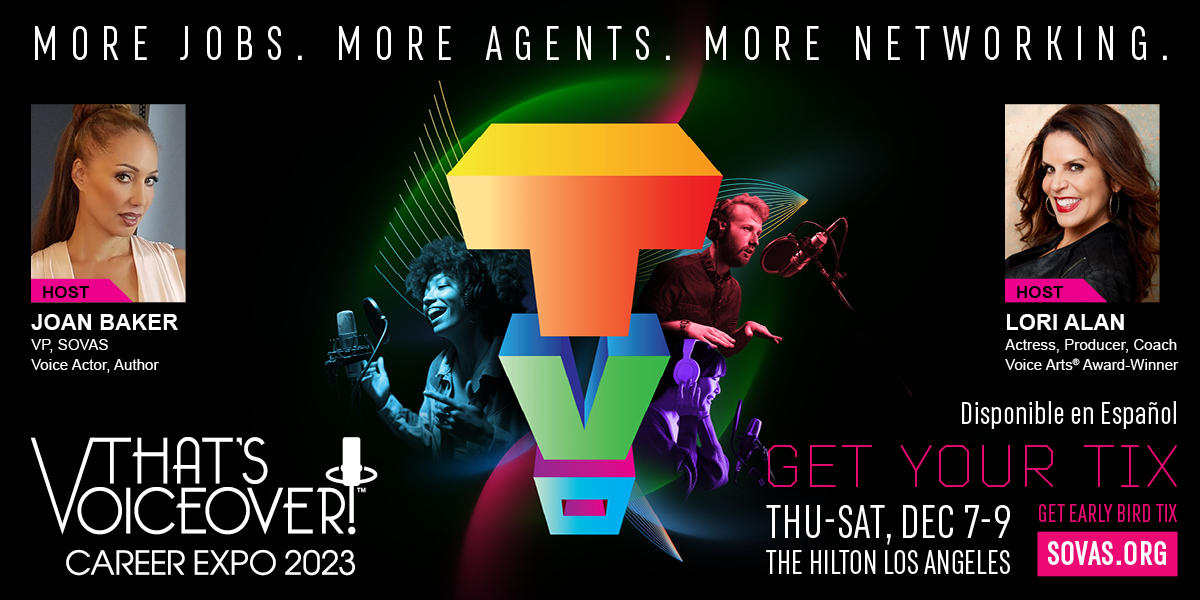Seun Shobo’s Helicopter View
of the Voiceover Industry
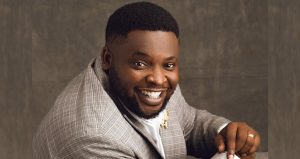
By Kayla Bowles, September 24, 2023
Hello SOVAS readers, and thank you for taking the time to visit my column, Diary of A Voiceover Intern. Here, I intend to engage my evolving learning experience as an intern at the Society of Voice Arts and Sciences (SOVAS) through a series of conversations with voiceover professionals. I will engage SOVAS ambassadors, previous winners of the Voice Arts® Award, casting directors, talent agents, and others in discussions about breaking into the voiceover industry and building a thriving career.
Meet Seun Shobo — voice actor, educator, sought-after brand consultant, author, and SOVAS international ambassador for Nigeria. With over twenty years of industry experience, his passion inspired him to create the pioneer training hub for voice talents in Africa, The Voice Over Academy (voiceoveracademyng.com), and The Voice Over Bank (voiceoverbank.com.ng) — the continent’s largest and most professional pool of voices. Shobo received the Voice Arts® Global Influencer Award in 2022, and is a professional member of the World Voices Organization (WOVO) USA and the Voice and Speech Trainers Association (VASTA). Please welcome him as my guest today.
Kayla: Hello Shobo, and thank you so much for being here!
Shobo: It’s my pleasure, Kayla. I’m always happy to share share what we are doing in in African voice acting marketplace, and how our work is expanding internationally. doing
Kayla: The first think I’d like to know is what being a “BrandMASTER” means to you? How do you define it?
Shobo: The BrandMASTER was a name given to me by two different clients whose brands I consulted for. The funny thing about it was they had never met each other. They were so impressed with the work I did for them that they christen me “The BrandMASTER.” I suppose it was in good fun, but the name stuck. To me, being The BrandMASTER means mastery of the craft. It signifies a grasp of the ideas and a solution-based thinking required to address the unique problems that are particularly to brands. It is a constant challenge for me to always stay on top of my game. I must always be on the path of excellence.
Kayla: That’s fascinating. I love the idea of being able to take ideas and make them a reality through branding. It truly is a special skill. How does your work as a BrandMASTER inform your work as a voice actor, and vice versa?
Shobo: As a voice actor, my work as a BrandMASTER really gives me a helicopter view of the voiceover industry. I am able to easily see how to penetrate the marketplace and stand out as a voice actor, teacher, and businessman. It also has helped my business acumen as a creator of voiceover brands. On the other side of the divide, as a brand consultant, voice acting helps me get information about different industries because, as a talent, any script on a given topic or occupation can be your job to execute. For someone like me, those sorts of jobs push my curiosity a deepen my understanding of what different brands require. I it requires a deal of research on my part when I am offered scripts (jobs) from industries or companies that I have never heard anything about.
Kayla: I absolutely love the “helicopter view” that you described. Being able to create a brand and market myself is something that I am perpetually working on as a voice actor just breaking into the industry. Speaking of working in the industry, you’ve been working in voiceover for over two decades. How did you first get involved in the industry, and how did you learn about and get involved with SOVAS?
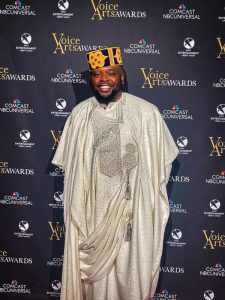
Shobo: My journey into voiceover began professionally in 2002 while I was still in college. I went for an audition put together by a talent agency that provided singers for commercials produced by ad agencies. Since I could sing to a certain extent, I decided to give it a try. I was chosen for the part, and was then offered to be part of another commercial for a telecommunications brand the very next day. As I walked into the studio, I had a chat with the CEO, who was astonished when he heard my speaking voice. He encouraged me to start doing voice acting as a full time profession. This was where my research about voiceovers started. The CEO had me record a demo which he started marketing to various agencies. This was how I started receiving various jobs and also how my voiceover journey kicked off. After a few years in the industry, when we were about to establish the voiceover academy in Lagos, my team and I started intense research on the industry worldwide, identifying the most impactful brands in the voiceover space. This was how I found out about the brand SOVAS. It was strictly through the internet.
Kayla: The internet is such a powerful resource, and I also owe a lot of my early exposure to the industry and voice actors I grew up idolizing to the ability to access so much information with a single search. That exposure informed my first career goals, some of which I still carry to this day. When first starting out, did you have any specific goals for yourself? How have your goals changed and/or evolved over time?
Shobo: Yes, Initially my goal was to earn massive amounts of money from my voice. However, I got into a voiceover deal that cheated me. This was what opened my eyes to the business side of voice acting, and the business side is now something I teach with great passion. As I grew into a better talent, I always wondered why African voices were not global players. It became a burden to me particularly because I had come across hundreds of talents who had no training or platforms. So, after my findings, my goal was to be a facilitator for, and groomer of, the best of African talents with an eye on global significance.
Article continues below.
From the Society of Voice Arts and Sciences
Article continues…
Kayla: Do you think you could describe the community and culture surrounding voiceover in Africa?
Shobo: One exceptional thing about voiceover in Africa is the dynamic nature of our culture, languages, and nuances. For example, we have about 300 ethnic groups and about 500 languages with just 3 major languages. The flavors and varieties have no rivals. This is why the delivery and interpretation of our scripts must be intimately understood and delivered with passion. Our cultures have a huge part to play in defining our style as African voice actors. The market is dominated primarily by the advertising genre, online content, documentaries, and ADR. We have a growing younger community as well as a good number of Industry veterans. It is an inspiring mix with an interest in learning, creating, and, of course, earning a living.
Kayla: Regarding the Voice Over Academy and The Voice Over Bank, both of which you founded, share with us the process of creating these organizations, and what inspired you?
Shobo: Having practiced as a professional voiceover talent for over a decade, I had experienced the nooks and crannies of the voiceover craft from an African perspective. I had earned so well and wondered why younger talents were not getting similar opportunities. I then researched and found out there was a wide knowledge gap. Talents loved this craft and wanted more information but had no place to learn. This is what inspired Africa’s first training academy for voiceover talents and The Voiceover Academy was birthed. It was a scary process because we were not sure what to expect as voiceover education had never been done here. After our first two successful masterclasses which were a test run, we then started the academy full time. It has definitely come with its own challenges especially as a pioneer brand but the successes outweigh the challenges. Regarding The Voice Over Bank, our vision was to build one stop shop for voiceover production and Africa’s largest pool of professional voices incorporating the full variety of African languages. From the time we kicked off until now, we have worked on massive projects and with a number of reputable brands in Nigeria, Africa, USA, Europe, and Asia. For The Voice Over Academy and The Voice Over Bank, we have found a way to integrate technology and this has in turn helped our processes to be smooth.
Kayla: That’s incredible. To accomplish what you have in such a short amount of time is something that most people can only imagine. It’s definitely evident that your skills as a brandmaster lent themselves to creating to extraordinary institutions. What would you say is the biggest risk you have taken in relation to your voiceover career, and why?
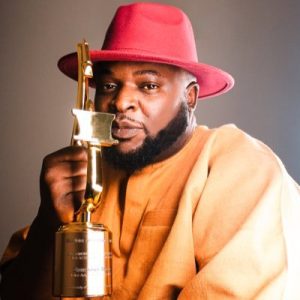
Shobo: I almost burst into laughter because every day feels like a risk taken. Due to my disruptive mind, I always reach for the unusual. However, I will try to stick to what I believe is the biggest risk. There was a particular job for which I was to be handsomely paid, and had planned in my head how I was going to use the money to reward with a good time. But something told me, you need to invest in yourself, you need to upgrade yourself for the vision you have for this voiceover craft. So, I then set out to visit the US for some voiceover conferences in 2018, 2019 and also the 2021 Voice Arts Award that happened in New York. I wanted to learn how the global market works and also network with the global voiceover heavyweights. It all started with that payment. I could have used the money to invest in a property or do something else but I decided to invest in seeking knowledge, not knowing if it would pay off – not knowing what was next. That was to me a big risk. Today, I can say proudly that it has all paid off.
Kayla: What do you think is most missing from the global voiceover community as of right now, and how do you think we should address it?
Shobo: Authenticity. As a voiceover artist who is big on diversity, it is my expectation that that characters are to be voiced according to their description. For example, If an animation character has the characteristics of an African of color, it should be voiced by an African of color, not by someone who doesn’t naturally relate to the culture, accent, and indigenous nuances of that character. When people listen, they can tell when these things are inauthentic. For example, I have listened to audiobooks written by Africans and voiced by non-Africans and found that the pronunciation of names and certain words were all wrong, complete distract from the purpose of the work. I have also watched animation characters that weren’t properly cast especially for voices of color, and seen the positive impact of that approach. Voice acting is a global marketplace and projects should be given the best shot at every opportunity. So, authenticity should not be merely an option. Every character must be cast to fit the culture and express the world’s diversity.
Kayla: Authenticity is something that I know is coming up in conversation all over the industry, and you put it so eloquently. The voiceover industry should be treated with the same amount of care and concern that can and should go into other projects, such as film or literature. I was wondering, what do you think is the most important thing for someone just breaking into the voiceover industry to know?
Shobo: Be clear on what you want as a voiceover talent. You can’t expect to plant an apple seed and get a harvest of oranges. Do you want this full time or is it just a side hustle? Are you looking at having fun with it as a hobby or Is this a career path? Your motive will determine your investment in the craft and what you will get out of it. The work ethic of a hobbyist driven voice talent cannot produce the results of a career driven voice talent. As individuals in this global industry, we determine how far we go. Once this concept is well understood, your journey will surely be an interesting and adventurous one.
Kayla: That’s so interesting. I have often heard that having too much of a fixed idea in your mind of what you want might make it difficult to adapt to the industry, but I love the way you described this idea of clarity as fuel for a work ethic. I am truly grateful for the passion I have for voiceover, as it has definitely pushed me to challenge myself and seek out opportunities for myself. Shobo, thank you again for talking with me today. Do you have any final thoughts before we wrap up?
Shobo: In the creative economy, particularly in the voiceover industry, the herd mentality will always be in fashion. However, to be a voice of significance, you must be unique, you must be outstanding, because while conformity may reign, exceptions will always lead. As a talent who intends to lead in this exciting industry, be conscious of your brand. Don’t just be a voice in the wilderness. Discover your uniqueness, structure it and sell it to the world. That way, you become a voice that the world can never forget.
Kayla: Thank you so much! Follow your passion, nurture your skills, and become a voice that the world can never forget.
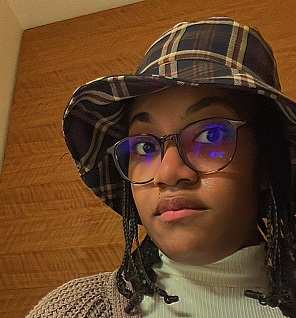 Kayla Bowles is assistant to Rudy Gaskins and Joan Baker, founders of the Society of Voice Arts and Sciences (SOVAS), creators of That’s Voiceover! Career Expo, and the Voice Arts Awards. She currently studies the art of voice acting with Joan Baker, and has studied with Real Voice L.A., The Acting Studio, and Broadway Evolved. Though new to the voiceover business, Kayla has already booked a local TV commercial, a role in an indie animated series (in development), and lent her voice to various passion projects. She is currently an undergrad at Sarah Lawrence College in Bronxville, NY.
Kayla Bowles is assistant to Rudy Gaskins and Joan Baker, founders of the Society of Voice Arts and Sciences (SOVAS), creators of That’s Voiceover! Career Expo, and the Voice Arts Awards. She currently studies the art of voice acting with Joan Baker, and has studied with Real Voice L.A., The Acting Studio, and Broadway Evolved. Though new to the voiceover business, Kayla has already booked a local TV commercial, a role in an indie animated series (in development), and lent her voice to various passion projects. She is currently an undergrad at Sarah Lawrence College in Bronxville, NY.
Capture a taste of That’s Voiceover Career Expo in the Video below.
